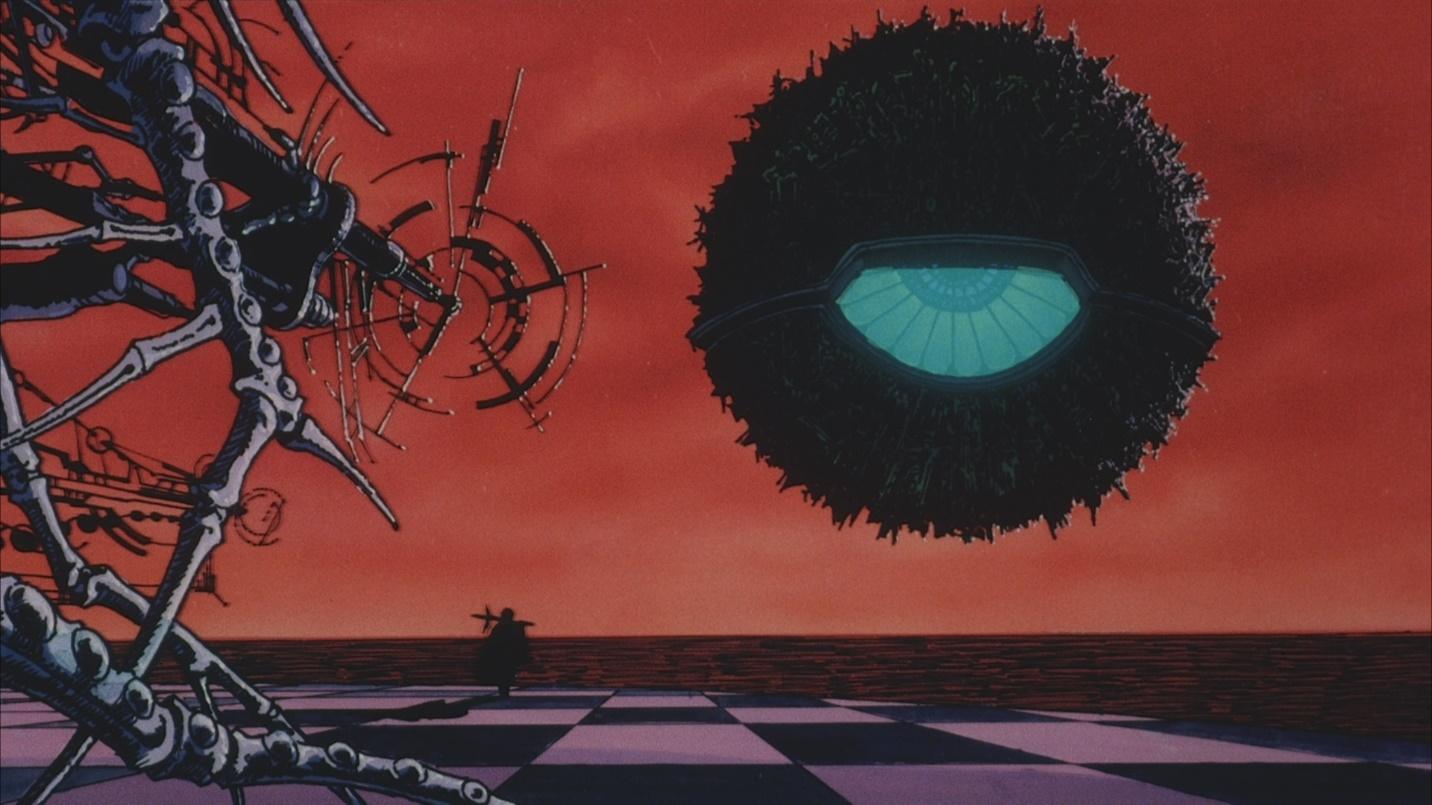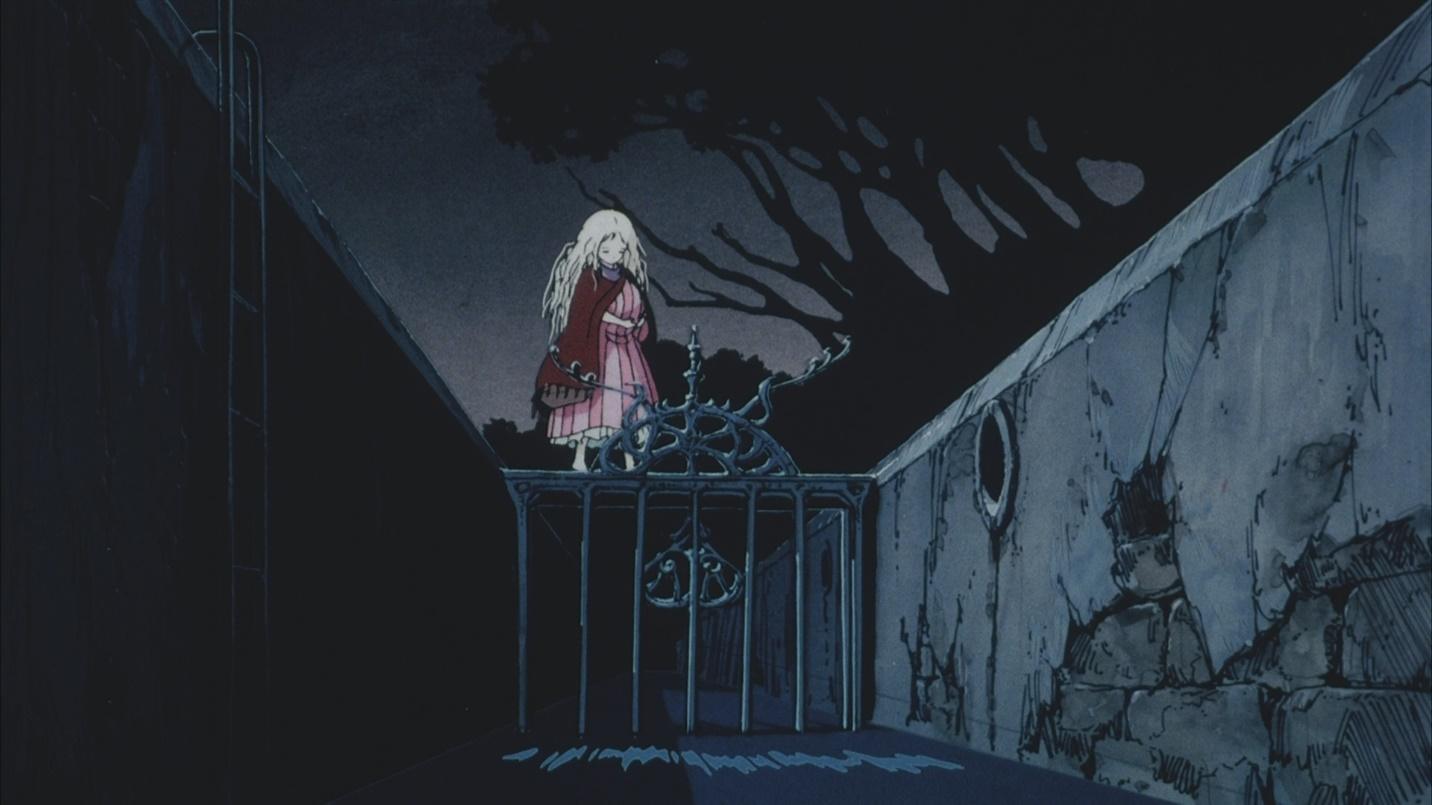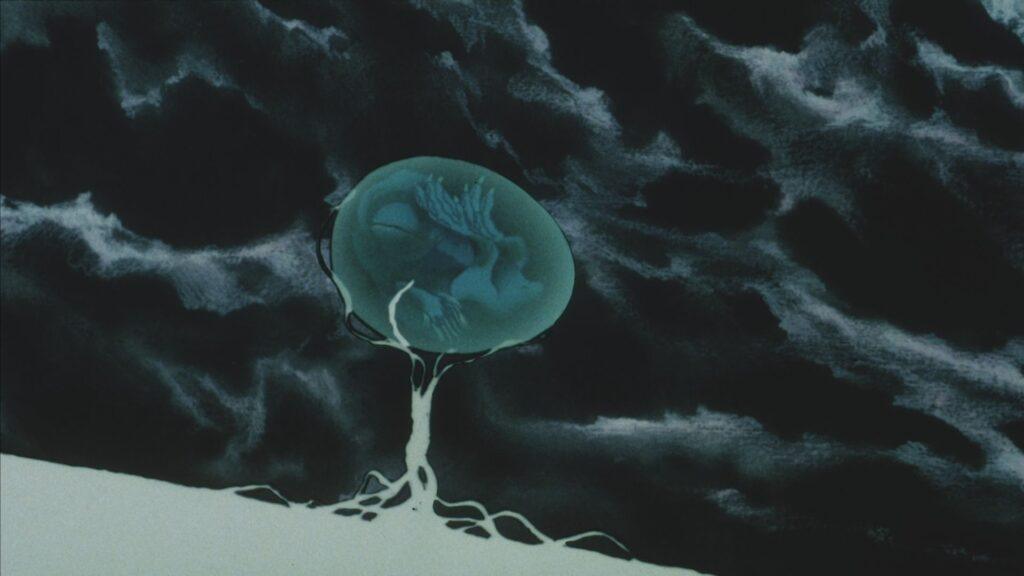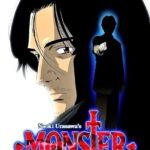Belief Or Unbelief?
Some films are easy to understand. Others don’t ask to be understood at all—they just exist, like dreams or memories you can’t quite explain but still carry with you. Angel’s Egg is one of those films. It doesn’t unfold in the way a typical narrative does. It doesn’t give us characters with names, or a story with a tidy arc. Instead, it offers atmosphere, silence, and symbols—deep, strange symbols that seem to mean everything and nothing at once.
At the heart of the film is a question so deeply human that it transcends religion, culture, or era: what happens when belief begins to break? Through its mysterious world, sparse dialogue, and unforgettable imagery, Angel’s Egg explores that delicate, painful space between faith and doubt—not with loud proclamations, but with a whisper. A soft, almost holy kind of sadness.

It’s a film about holding on and letting go. About searching for meaning in the ruins of something that once felt divine.
The Girl, the Egg, and a Faith That Never Questions
There’s no backstory, no introduction—we’re simply dropped into a ruined, quiet world where a lone girl carefully guards a large, white egg. She carries it everywhere, wrapping it in cloth, hiding it under her dress, cradling it when she sleeps. Not once does she try to open it. Not once does she question what might be inside.
That right there is the first powerful symbol of the film: faith without proof. Her belief in the egg is complete, but also fragile. She never tries to test it. It’s as if she knows that to crack it open would risk losing something too precious—something not just sacred, but essential to who she is.
Then comes the man.
He arrives with no clear purpose, carrying a strange, cross-shaped weapon on his back. His tone is calm, almost detached. But his presence brings tension. He doesn’t dismiss the egg outright, but he does question it. Gently, curiously, but persistently. “Do you know what’s inside?” he asks her. “Why do you protect it?”
That contrast—the girl who believes without needing answers, and the man who doubts and questions—forms the emotional spine of the film. Their interactions are few and brief, but they carry enormous weight. They’re not arguing, exactly. They’re not even debating. It’s more like they’re standing on either side of something neither can fully explain: the mystery of belief itself.
When the man eventually breaks the egg, it’s not done with cruelty—it almost feels inevitable. He doesn’t seem angry or malicious. He just… can’t help it. He’s someone who needs to know, even if the truth is empty. And in that moment, we see what happens when doubt overcomes faith.
It’s heartbreaking. Not because the egg is destroyed, but because of what it meant to her. The breaking of the egg isn’t just the loss of a physical object—it’s the shattering of hope, of innocence, of unquestioned belief.

A Quiet Meditation on Doubt, Loss, and the Fragility of Belief
Angel’s Egg isn’t interested in being explained. It never confirms what the egg symbolizes, who the man is, or what the world used to be. But its meaning doesn’t come from clarity—it comes from feeling. And what you feel, watching it, is a deep kind of loneliness. A silence that speaks louder than dialogue ever could.
Director Mamoru Oshii has said that he was grappling with his own religious doubts while making this film. He had once been devout, raised with Christian beliefs, but found himself slowly slipping away from them. You can sense that personal struggle in every frame of the movie. The world he creates isn’t angry at God—it’s grieving His absence.
The fisherman who chases after the shadows of fish in one haunting scene are another metaphor that stays with you. They thrust their harpoons at illusions—desperate, almost robotic, still acting out rituals even when they no longer serve a purpose. It’s faith turned into muscle memory. A kind of religious instinct that continues long after belief has faded.
And then there’s the ending. The girl’s fate is never spelled out, but the final image—an enormous, mysterious structure shaped like an overturned egg—leaves a deep, aching sense of loss. Has her faith been absorbed into the ruins? Is the world she lived in a relic of something that once held meaning, now crumbled into myth?
There’s no judgment in any of this. Angel’s Egg doesn’t tell you to believe or not to believe. It simply sits with you in that quiet, uncomfortable space between certainty and confusion. It asks what we’re really clinging to when we say we have faith. And whether we can keep believing when we stop pretending to know.
Final Thoughts
Angel’s Egg is not an easy film. But it’s one of the rare works that truly understands the emotional complexity of doubt. It doesn’t offer comfort or clarity. Instead, it gives you a mirror. A softly lit, deeply unsettling mirror that reflects your own beliefs back at you—and asks if you’re still sure.
Whether you’re religious, spiritual, agnostic, or somewhere in between, this film has something to say. Not in loud words, but in quiet images. Not in answers, but in questions.
Because sometimes, the most honest thing we can do is admit that we don’t know—and sit with that silence for a while.



